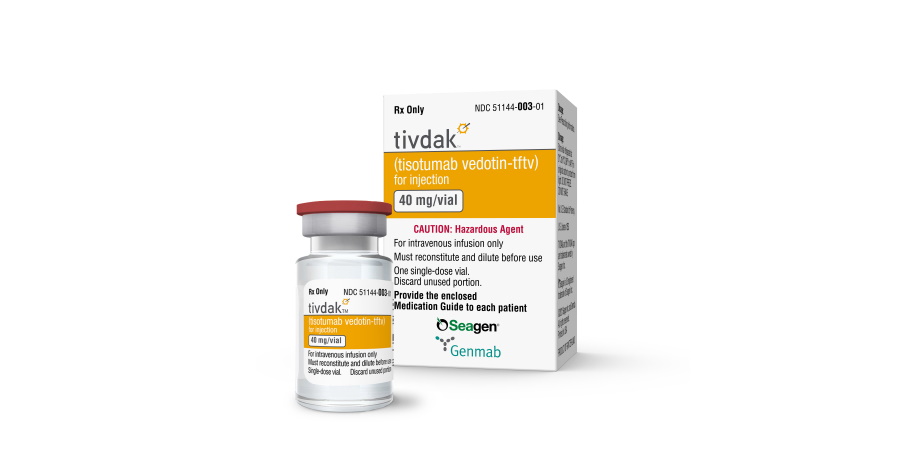FDA clears Seagen, Genmab's Tivdak ADC for cervical cancer

Antibody-drug conjugate (ADC) specialist Seagen has claimed its fourth product approval in the US, getting the nod from the FDA for Tivdak as a second-line monotherapy for recurrent or metastatic cervical cancer.
The accelerated approval for Tivdak (tisotumab vedotin) is for women whose cancer has progressed on or after first-line chemotherapy, according to the pharma company and its partner Genmab.
It has been granted on the strength of the phase 2 innovaTV 204 trial, an open-label study in 101 subjects, which showed that tumours shrank or stopped growing in 24% of patients treated with the ADC, with a median duration of response of a little over eight months.
Tivdak is a first-in-class therapy that combines an antibody target at tissue factor – a protein expressed on cervical cancer cells – with a cell-killing drug called monomethyl auristatin E.
It is the third approved ADC after lymphoma therapy Adcetris (brentuximab vedotin) and bladder cancer drug Padcev (enfortumab vedotin) for Seagen, which also sells a small-molecule HER2 inhibitor – Tukysa (tucatinib) – for breast cancer.
At the moment, women who progress after first-line chemotherapy are often treated with cancer immunotherapies such as Merck & Co's PD-1 inhibitor Keytruda (pembrolizumab).
Approved therapies for this group of patients result in limited objective response rates of typically less than 15% with median overall survival ranging from six to 9.4 months.
While this approval puts Tivdak in contention with Keytruda and other second-line options, the ADC is also in trials as a combination with Merck's drug, and also as a first-line option alongside chemotherapy.
At the ESMO congress – which ends today – results of the innovaTV 205 trial of Tivdak alongside carboplatin in previously untreated advanced cervical cancer revealed a 55% objective response rate (ORR). When combined with Keytruda after one or two prior lines of systemic treatment, the drug achieved an ORR of 38%.
There's no word yet on a price for Tivdak, which will launch with a black box warning for ocular toxicity on its label. Seagen and Genmab are hosting a conference call later today to discuss further details of the new product.
Analysts at Jeffries have previously predicted that Tivdak could generate around $600 million in sales at peak, with around half of that coming from cervical cancer and the remainder from other possible indications like colorectal, lung, pancreatic and head and neck cancers.
It is estimated that in 2021, more than 14,480 new cases of invasive cervical cancer will be diagnosed in the US, and 4,290 women will die from the disease. Cervical cancer is one of the leading causes of death for women globally.













